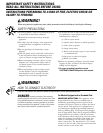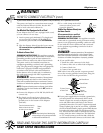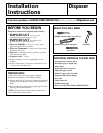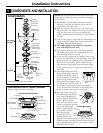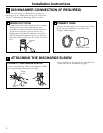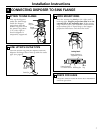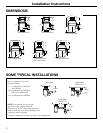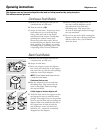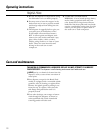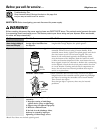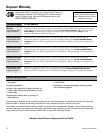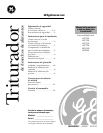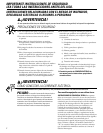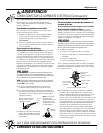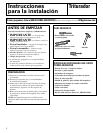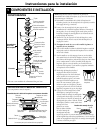
10
Helpful Hints
A. Be sure the disposer is empty before using
the dishwasher so it can drain properly.
B. You may want to leave the stopper in the
drain when not in use to prevent utensils
and foreign objects from falling into the
disposer.
C. The disposer is ruggedly built to give you
years and years of trouble-free service.
It will handle all normal food wastes---
BUT it will not grind and dispose such
items as tin cans, bottles and bottle caps,
glass, china, leather, cloth, crockery,
rubber, string, feathers, or clam or oyster
shells. These are waste materials and
belong in the trash can or trash
compactor.
D. TO SPEED UP FOOD WASTE
DISPOSAL…Cut or break up large bones,
melon rinds, grapefruit skins and corn
cobs. Items such as large bones, fibrous
husks like lima bean pods and corn husks
require considerable cutting time. For this
reason, you may prefer to place them in
the trash can or trash compactor.
Operating instructions.
Care and maintenance.
THE MOTOR IS PERMANENTLY LUBRICATED FOR LIFE. DO NOT ATTEMPT TO LUBRICATE
YOUR DISPOSER. The disposer is self cleaning and scours itself with each use.
■
■NEVER put lye or chemical cleaners into the
disposer, as they cause serious corrosion of
metal parts.
■
■Your disposer, except for the Batch Feed
model, is equipped with a removable splash
guard for ease of cleaning or replacement.
Remove the splash guard by pulling it out
from the top. To replace, insert into the
sink flange and push down until it is
properly seated.
■
■If an odor develops, run orange or lemon
rinds through the disposer. A dozen ice
cubes sprinkled with a little household
scouring powder will also work.



